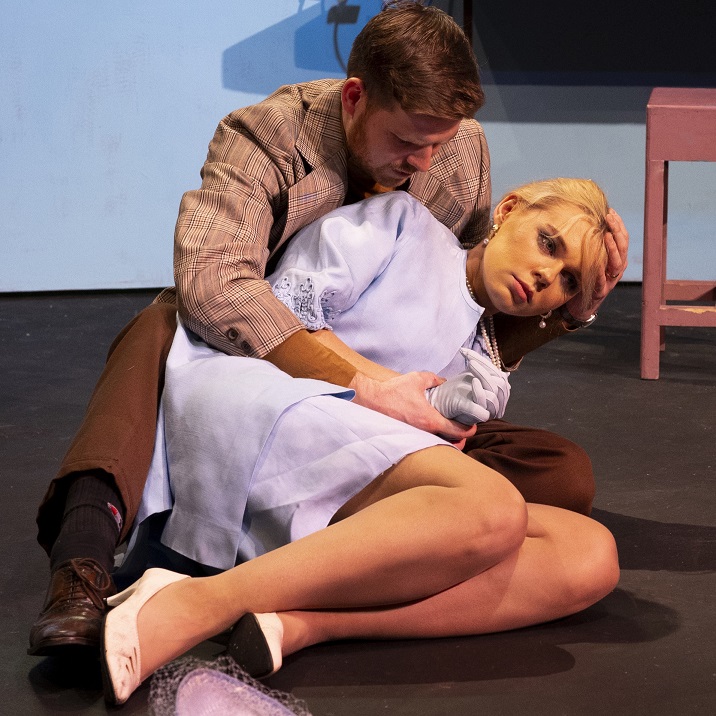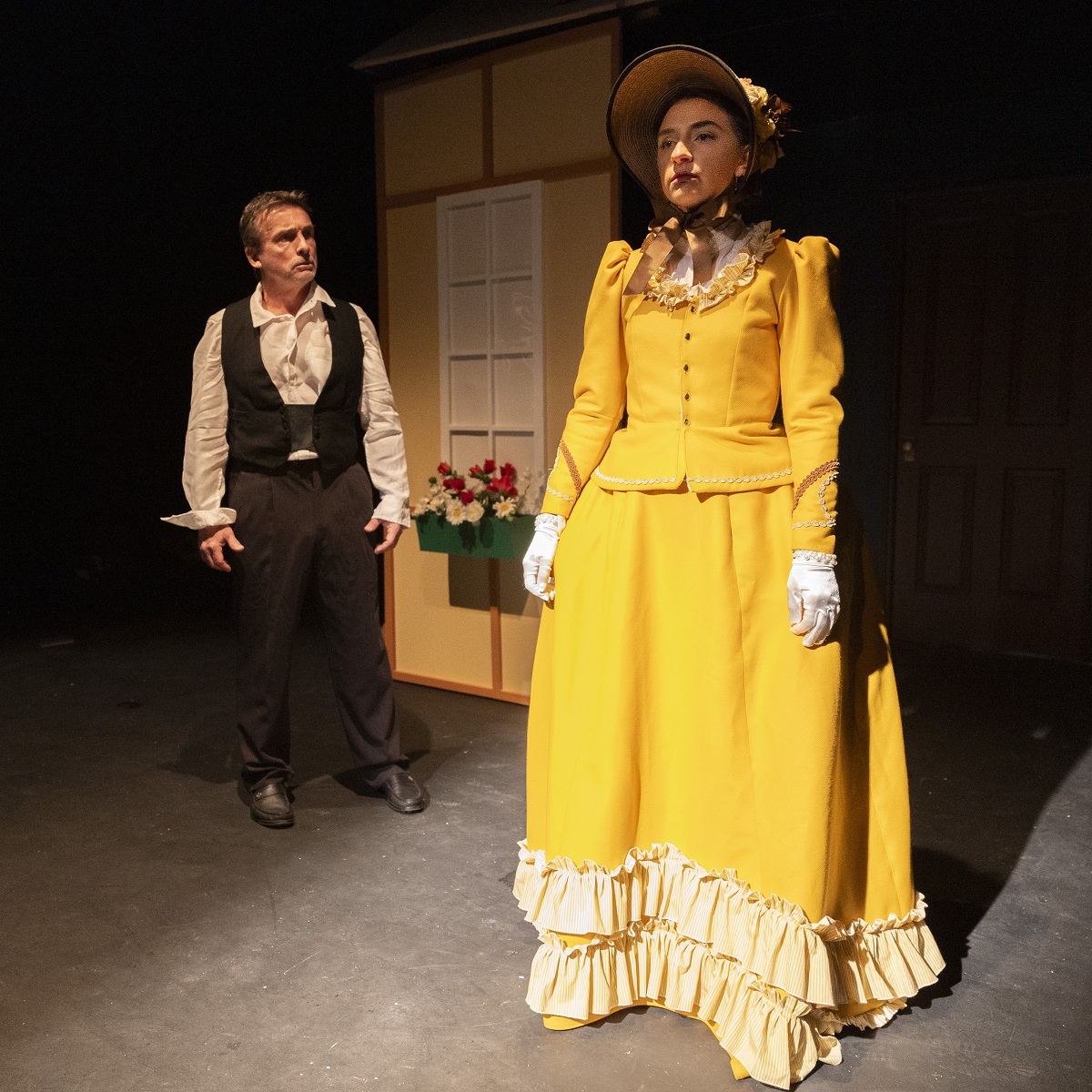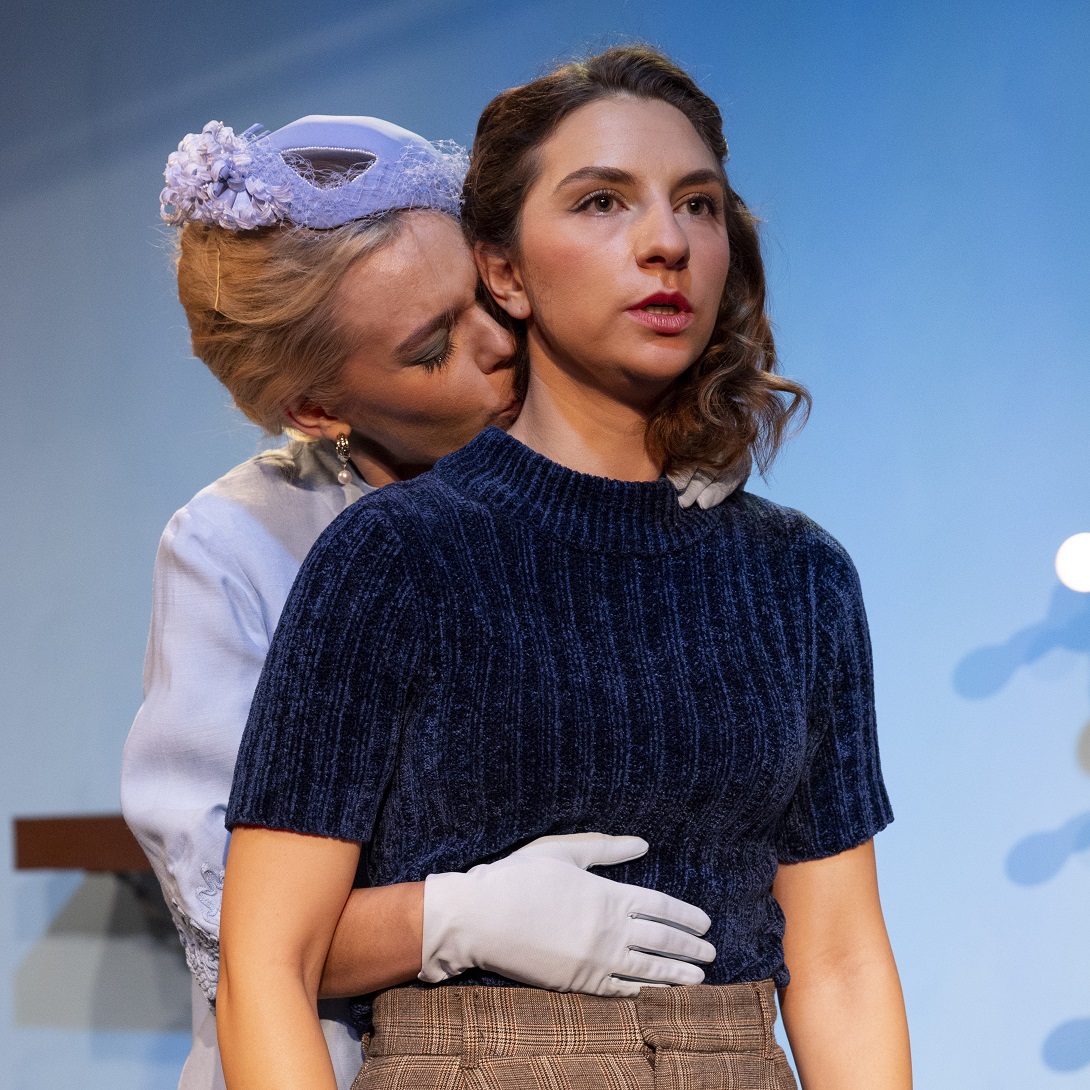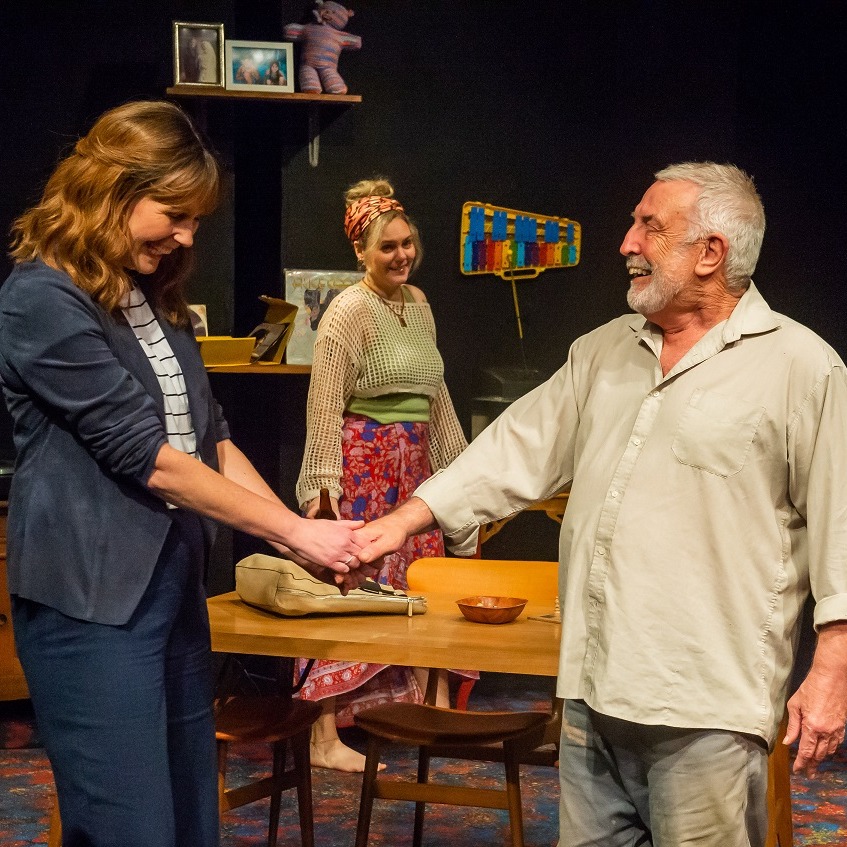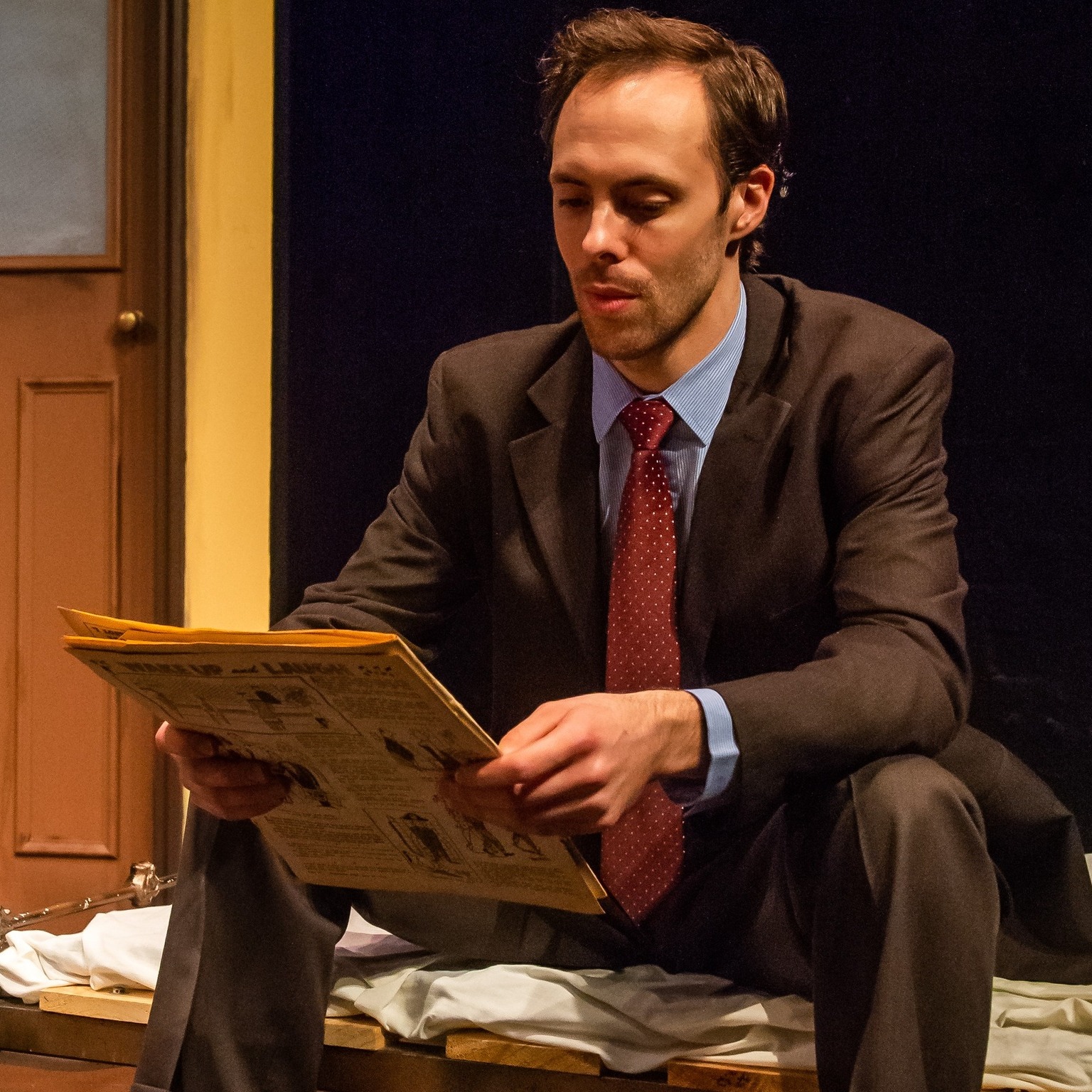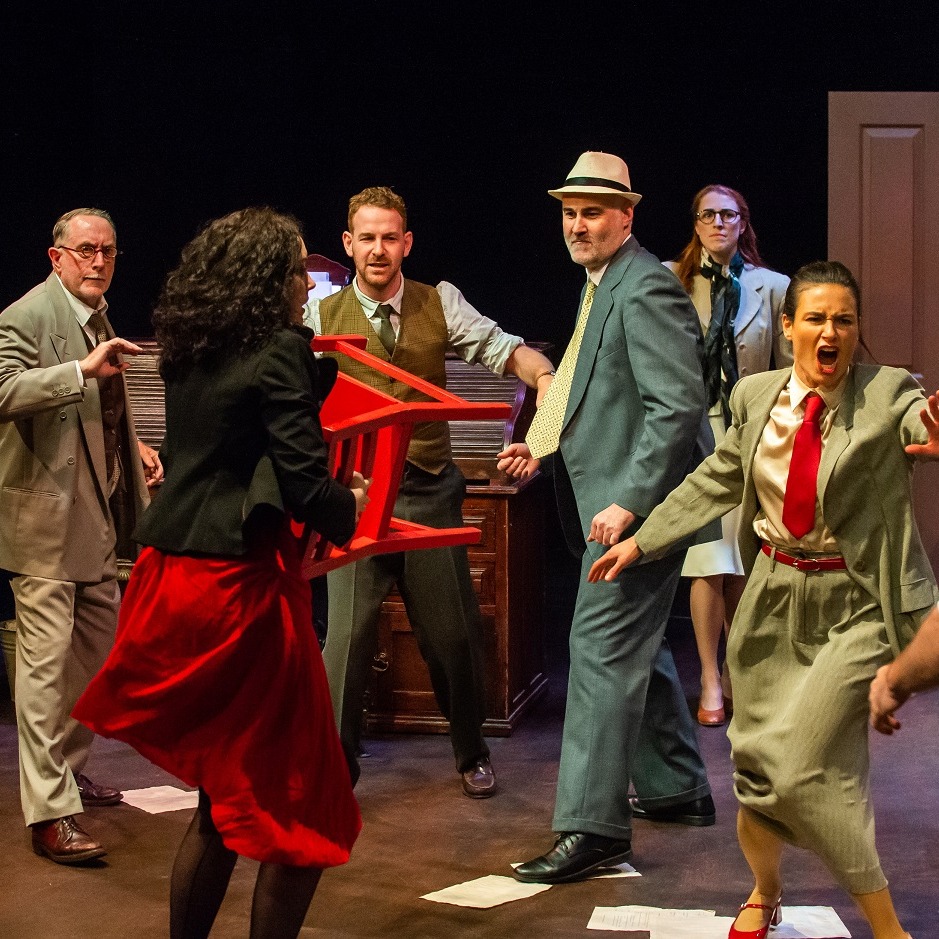What’s involved in one single day in the life of you?
Do you wake up, have an ordinary and satisfying day at work, return home and feel contented with life? If you do, then you are lucky. In “Fighting”, now performing at the New Theatre in Newtown, Character A struggles through just one day of his life, and we are in the front seat, travelling along his emotional rollercoaster with him.
“Fighting”, written by Xavier Coy, is about the highs and lows of someone with bipolar disorder. Having been diagnosed with bipolar during the 2020 lockdown, the playwright felt that the disease had previously been portrayed on-screen as someone who was “crazy”. Xavier wanted to write a play dedicated to authentically depicting the complexities of living with bipolar. Written as a dark comedy, “Fighting” won the Silver Gull Award in 2022.
Sound designer Mehran Mortezaei’s choice of the opening song was perfect. Nirvana’s “Lithium” with lyrics such as “I’m so ugly”, “I’m so lonely” and “I love you, I’m not gonna crack” hints at the character’s struggles of self-loathing and internal angst, yet also has the strength and will to keep going, to survive.
Character A wakes up and is immediately inundated with noise and voices. Character B, played by Sophie Highmore, is one of hope. She is encouragement; the calm voice of reason who reminds Character A to do the exercises recommended by his psychologist when he feels anxious or heightened. Character C is the voice of melancholy. Played by David Woodland, Character C is easily recognised as one of chaos, self-loathing, destruction, and darkness.
Jay James-Moody as Character A pulled me into his world immediately with his fast-paced self-talk, a dialogue of descriptive analogies of how his body is feeling as he navigates through his workday. He is a Vodaphone salesman at a company owned by a couple, a woman in her sixties named Helga and her older partner Cliff, who have an active sex life and don’t mind sharing details with Character A. This causes him to be very uncomfortable yet, at the same time, provides a lightness to some heavy scenes. Helga, played by Sophie, is a caring boss. Cliff is a pensioner, an elderly gentleman and David’s interpretation of this character is hilarious, right down to his mannerisms – a comedic tongue popping out as he speaks needs to be mentioned!



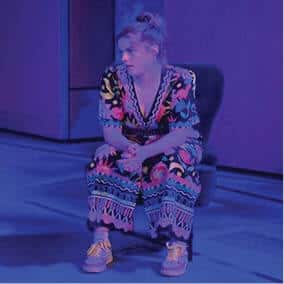
In the course of his day, he comes across different customers, also played by Sophie and David. These customers add a scatter of comedy amongst some darker scenes. These customers are all different. Some are odd, such as the ‘conspiracy theorist’ (“you lost the sale of someone who came in wanting to buy a phone”- taunts Character Chaos). Another is a nonchalant customer (“Why even bother?”), a young teen reminiscent of a fourteen-year-old bubble tea drinker with clearly no serious plans to purchase a phone or a plan, and a customer Character A in Salesman-on-Fire mode pitches to and convinces him to buy a phone and “Be here! Be now! Be Somebody!”
Character A still holds the pain of grieving the breakup of his former girlfriend, and Jay’s portrayal of this is sharp as he tries to use strategies throughout the day to remain centred in the moment after he sees her when she enters his Vodaphone store and back into his life unexpectedly. An upcoming date and all the customers give the audience a chance to witness Character A’s fluctuating moods, from one scale of calm to the other end, hypermania, along with Hope and Chaos’ responses to these situations.
Throughout “Fighting” there is no silence, no peace for the protagonist, and it is exhausting for him. There is only Hope’s guidance and Character C’s sharp barbs, his pointed and specific insults that result in intense self-loathing. At one point, David’s portrayal of Character C‘s unrelenting mocking and scornful words combined with him physically circling him and the loud fast heartbeats of the sound design combine to create a breathstopping scene. Even Hope’s words, his own voice of survival, is silenced during this scene. The lighting by Robin Legal highlights Character A. This scene is a culmination and very intense, and there is a trigger warning of suicidal ideation in this play.
Director Xavier Coy’s production is emotional, the scriptwriting and acting of the company has successfully portrayed the disintegration of the mind, the feeling of being a stranger in a world always on the outside looking in and a loneliness that comes along with someone suffering from a mental illness such as bipolar. We felt it here, and it is a place that no one would choose to be.
“Fighting” is playing at New Theatre, 542 King St Newtown from 18 March – 12 April 2025.
Tickets: www.newtheatre.org.au/fighting
Full $37
Concessions, Groups (6+) $32
New Theatre Members $25
Thrifty Thursdays $25
Preview $20


